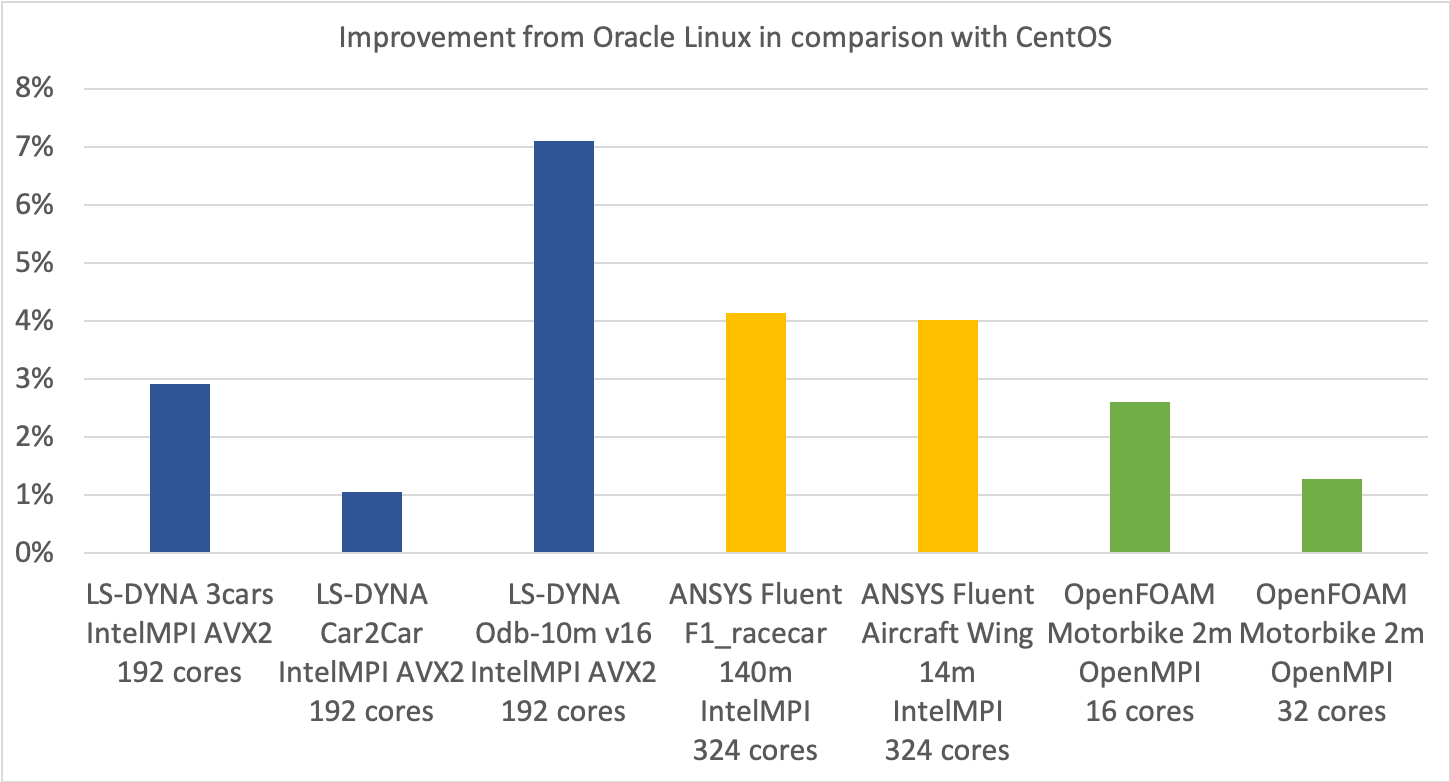Improving HPC with Oracle Linux
Even a few-percentage improvement in performance of a high-performance computing (HPC) workload can result in significant cost savings. To help customers, the HPC team at Oracle has been testing Oracle Linux with benchmarks and proof of concepts. Oracle Linux has an optimized operating system kernel, the Unbreakable Enterprise Kernel (UEK) that provides performance gains on some HPC workloads. They achieved results of 1–7% improvement compared to running the same code on CentOS.
Running HPC simulations can take a toll on your computing resources. Quicker turnaround of simulations means you can run more workloads for your money, or reduce costs by investing less in resources.
The following graph shows the results of running three commonly used HPC simulation software solutions: LS-Dyna, ANSYS Fluent, and OpenFOAM.

All simulations were run on Oracle Cloud Infrastructure in BM.HPC2.36 instances. HPC running on Oracle Cloud takes advantage of cluster networking, Oracle Cloud’s low-latency remote direct memory access (RDMA) backbone running RDMA over converged ethernet (RoCEv2).
Why Does It Run Faster?
For these applications, we ran the Oracle Linux Unbreakable Enterprise Kernel (UEK), which is optimized for performance and includes performance and scalability improvements to the process scheduler, memory management, file systems, and the networking stack.
Oracle Linux also offers a binary-compatible Red Hat Kernel. If you’re running your HPC workloads on Red Hat Enterprise Linux, you can gain significant cost savings and eliminate your support bills by switching to Oracle on Oracle Cloud Infrastructure, without reinstallation or coding changes. An Oracle Cloud Infrastructure subscription includes Oracle Linux Premier Support at no extra cost.
Ready To Get Started?
All you need to benefit from this offering is to get started with Oracle Linux on Oracle Cloud for HPC workloads. You can launch an HPC cluster in a few clicks using the HPC RDMA cluster network image from the Oracle Cloud Marketplace. To run on ultra-low latency RoCE v2, follow these instructions.
For more information about Oracle Linux, check out the Oracle Linux product page.
